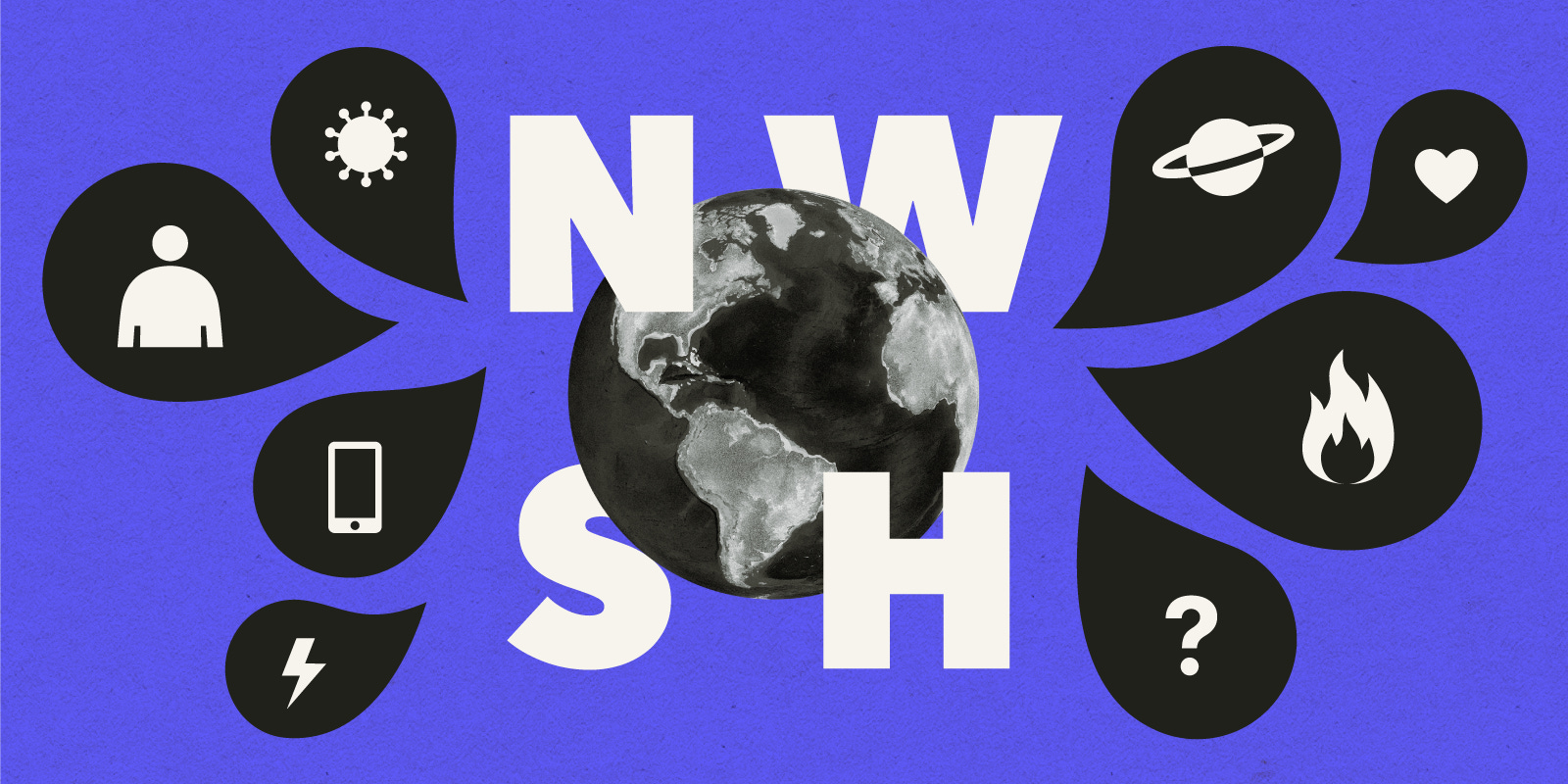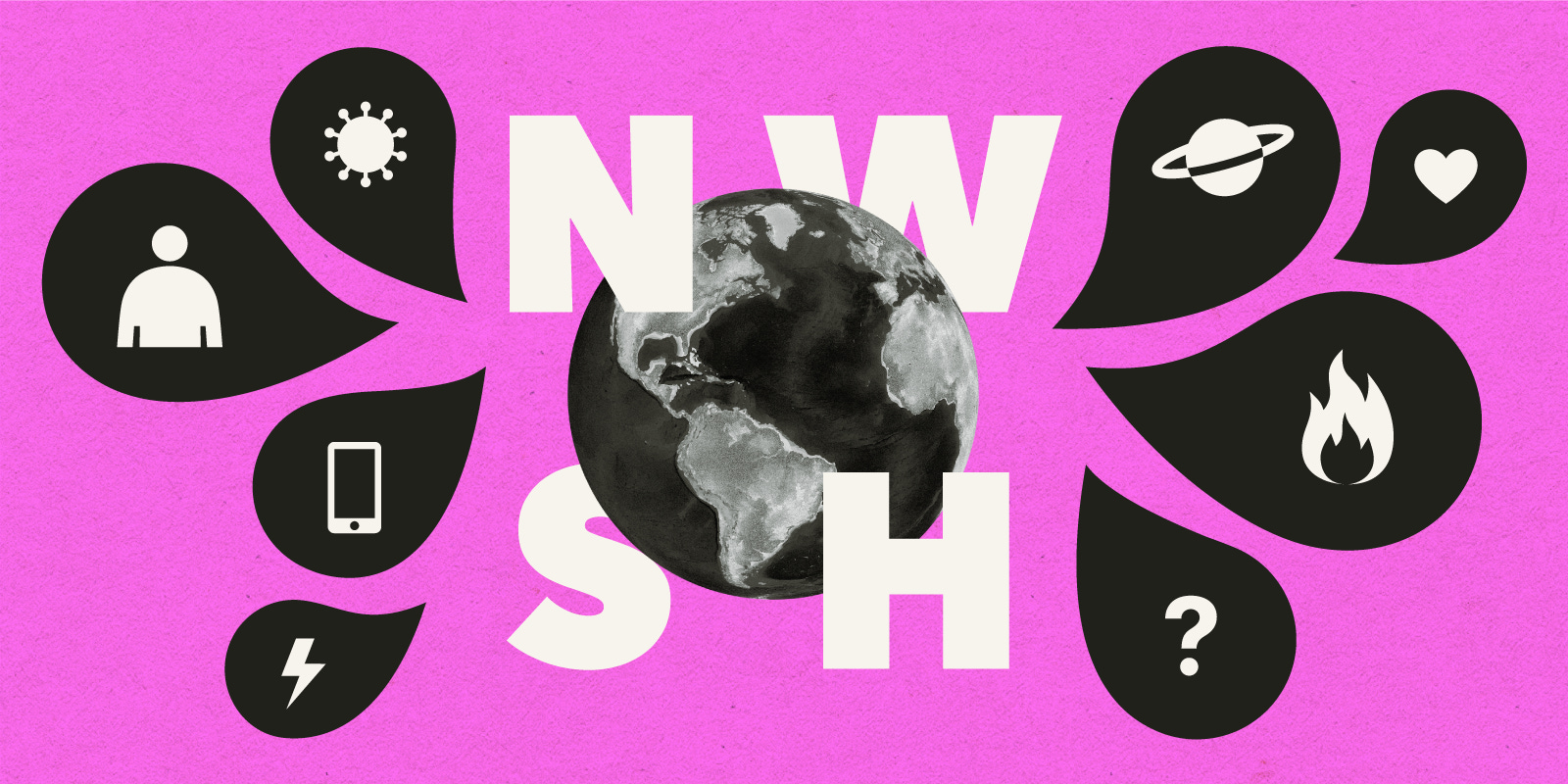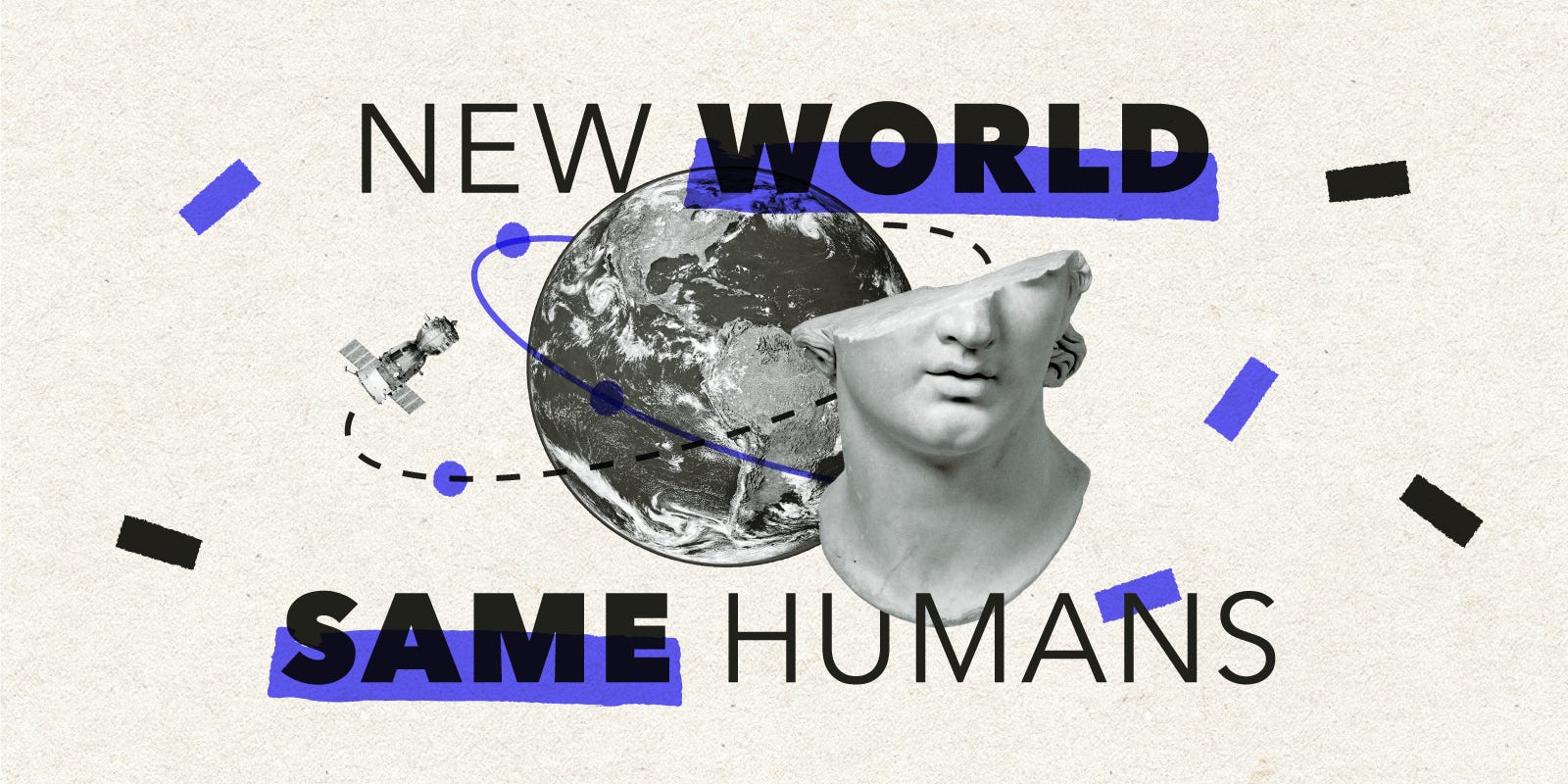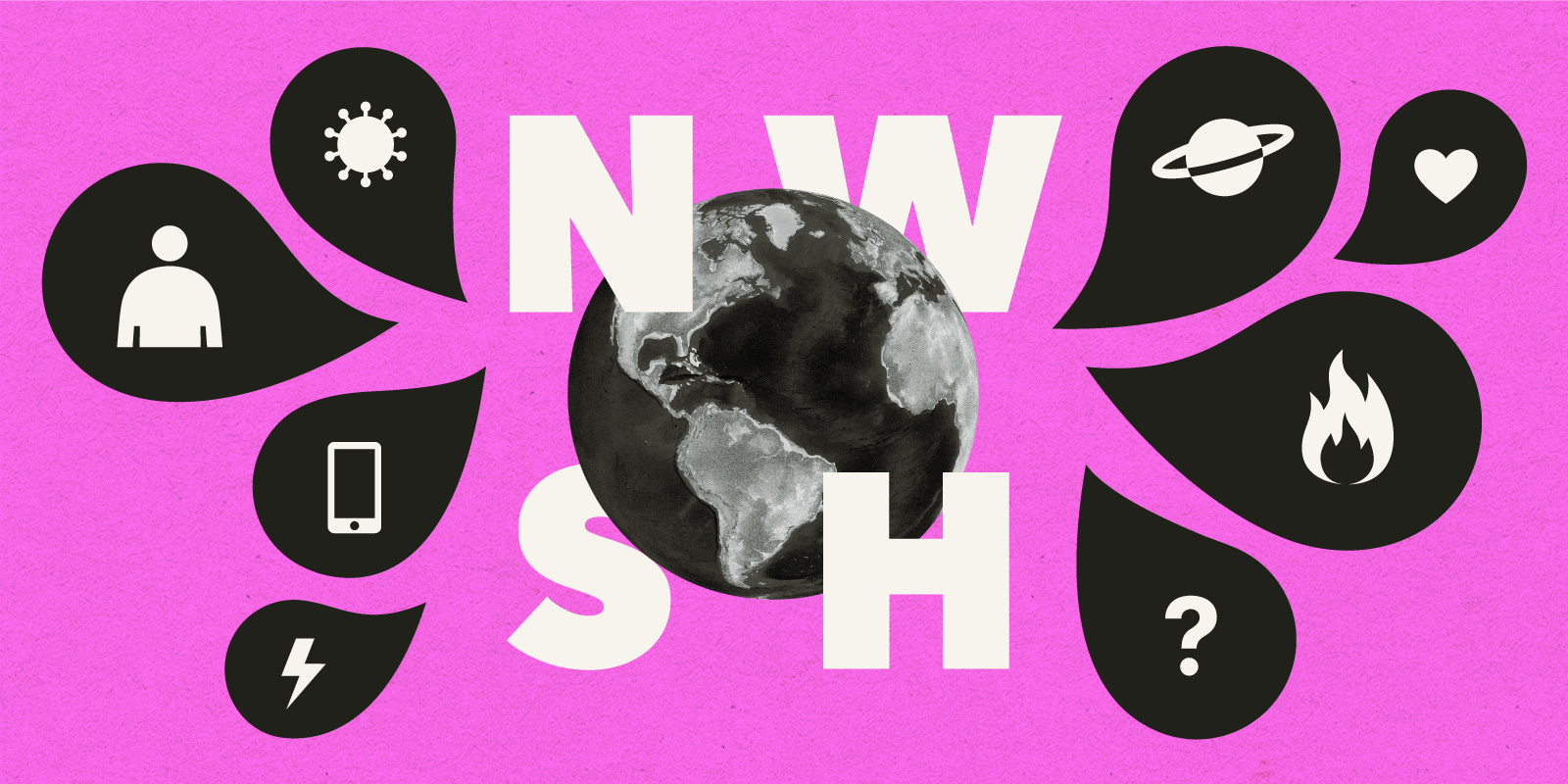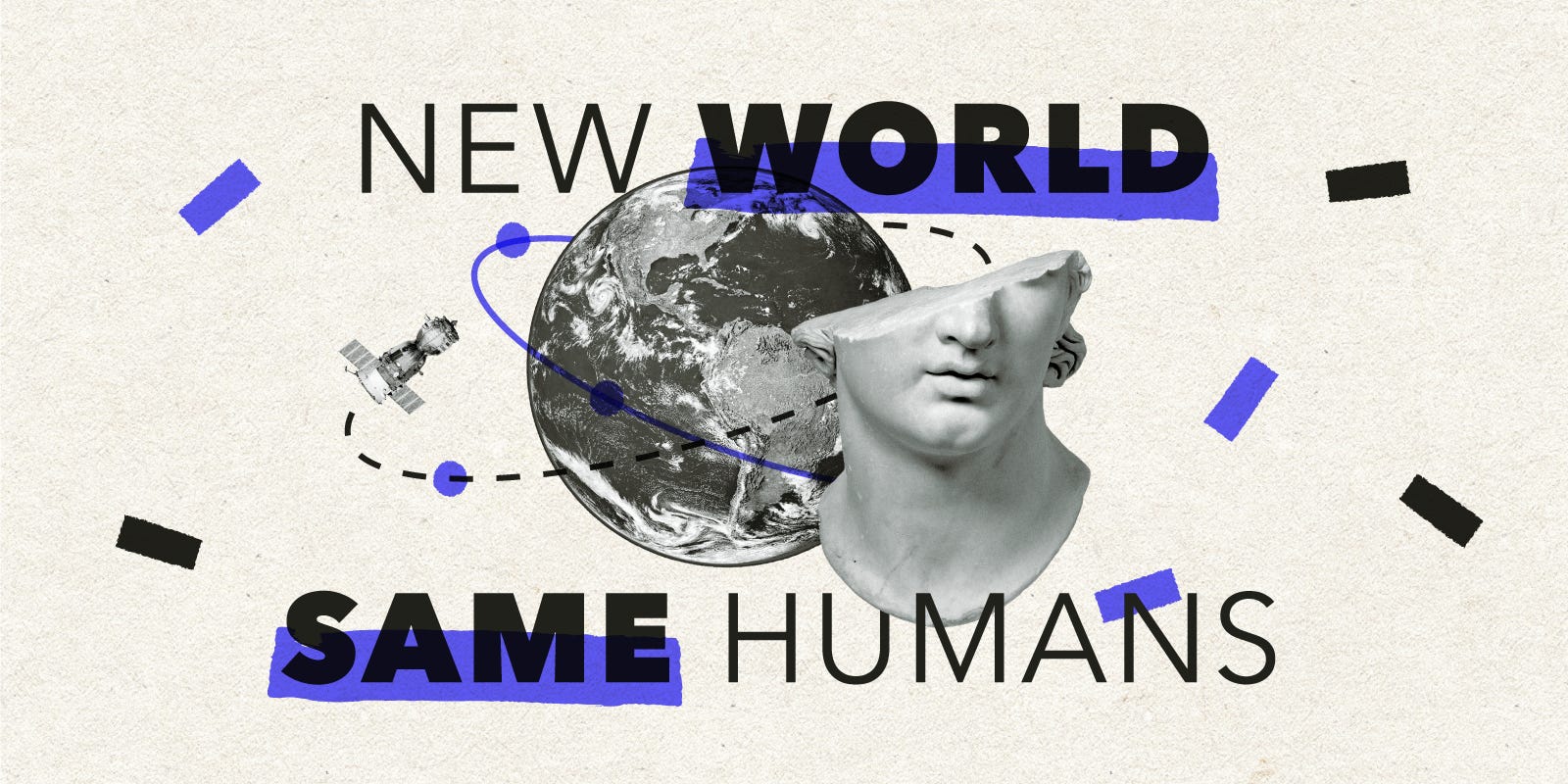New Week #126
Description
Welcome to this update from New World Same Humans, a newsletter on trends, technology, and society by David Mattin.
If you’re reading this and haven’t yet subscribed, join 25,000+ curious souls on a journey to build a better future 🚀🔮
To Begin
This week, more AI magic rains from the sky.
Also, average temperatures on planet Earth exceed the 2C warming threshold for the first time.
And my take on the OpenAI fiasco. In the end, it’s about power.
Let’s get into it.
✨ Like magic
This week, further glimpses of the ongoing collision between human creativity and machine intelligence.
Stable Diffusion released Stable Video Diffusion, a new text-to-video model that looks to be a step beyond anything we’ve seen so far.
In keeping with the company’s open source mission, the code for the model is available at its GitHub repository.
Meanwhile, X users went wild for a new tool, Screenshot to Code, that leverages GPT-4 and DALLE 2 to take a screenshot of any web page and automatically write the code that will render it:
And Elon Musk announced that X’s new on-platform large language model, Grok, will launch to all Premium users next week:
Grok is trained on a vast dataset of X posts; it’s sure to be expert in writing posts with a great chance of going viral. What’s more, it will have access to X posts in real-time; that could make for a whole new way to discover and interact with news stories.
⚡ NWSH Take: This gallery of the week’s AI wonders could go on far longer. I didn’t mention the new voice-to-voice model from UK-based Eleven Labs, for example: just upload your own voice and hear it converted to that of a famous celebrity, or a custom character that you create. // What’s the broader point here? A couple of weeks ago I shared an excerpt from a long AI essay called Electricity and Magic. That essay argues for a two-sided model of machine intelligence and its manifestations in the coming decades. First, machine intelligence is becoming something foundational — akin to a form of fuel that will power an army of autonomous vehicles, robots, and more. But in our daily life AI will manifest differently; not as fuel, but as magic. The innovations above give a glimpse of what I’m talking about. AI is moving into domains — from music, to film-making, to writing — once believed to be impervious to encroachment by automation. It’s as though someone has waved a magic wand over our machines. // The crucial point to understand, though, when it comes to AI magic? The result won’t be, as many people imagine, the devaluation of human creativity. Instead, amid a tsunami of machine-generated outputs, what is uniquely human — including creative work grounded in embodied experience — will only become more prized.
🌊 Crossing over
Another significant, and unwelcome, climate milestone was passed in the last seven days.
According to the EU’s Copernicus Climate Change Services (CS3), Friday 17 November was the first day on which average global temperatures were more than 2C above pre-industrial levels.
Data for 17 November indicated that global surface air temperatures were 2.07C above those in 1850. Provisional data for the following day indicated a 2.06C elevation.
This doesn’t mean that the much-discussed 2C threshold has been crossed. For that, we’d need to see a sustained elevation above 2C.
CS3 is part of the EU’s Copernicus Earth Observation Programme, which draws on vast amounts of satellite and other data to track the changing planetary environment.
⚡ NWSH Take: It’s expected that we’ll see occasional 2C+ days well before we exceed the 2C limit as commonly defined. Still, this week saw both the first ever and the second day that global average temperatures tipped over the threshold. It’s pretty clear where we’re heading. // This news comes on the eve of the UN COP28 summit in Dubai, which starts on 30 November. Many view last year’s summit, held in Egypt, as the moment at which the internationally agreed 1.5C target slipped out of reach; the summit notably failed to agree on a phase out of all fossil fuels, despite support for that proposal from over 80 countries. But the summit did achieve something: the establishment of a Loss and Damage Fund intended to transfer tens of billions to developing nations most at risk from climate change to help them mitigate the impacts of floods, droughts, and more. // At COP28, expect another push for a commitment to phase out all fossil fuels. And expect petrostates — including the host — to resist that call. As consensus grows that the 2C target will be breached, more attention will turn to plans for adaptation — and who should pay for them.
Form an orderly Q*
I can’t let this instalment pass without talking about the OpenAI fiasco.
Tech watchers everywhere munched their popcorn this week while OpenAI proceeded to fire CEO Sam Altman and hire a new CEO, only to get rid of that new hire and rehire Altman five days later.
It’s still unclear what led the OpenAI board to eject Altman in such dramatic style. But the mainline theory is that this was about internal division between those who want prioritise the original and nonprofit mission to research safe machine intelligence, and those — Altman apparently among them — who want to move fast and make lots of money.
Yesterday, news agency Reuters made waves with claims that the debacle may have been related to an advance called Q*. The details of that advance — or indeed if there has been any advance — are unconfirmed. Cue a whole new wave of speculation:
As per the above, most believe Q* is related to a generalised form of q-learning — a kind of reinforcement learning — that would enable LLMs to solve multi-step logic problems. Or, in simpler terms, to take multiple and reasoned steps towards a long-range goal in the way we humans do all the time.
Reuters imply that this advance prompted some in the organisation to fear that OpenAI was getting (dangerously) close to Artificial General Intelligence. And that this is what sparked all the drama.
⚡ NWSH Take: It’s believed that OpenAI will start to train GPT-5 next year. If that is true, and if Q* really is a big step towards generalised agents, then the AI story will only accelerate across next 12 months. We’re all, by now, accustomed to tech hype cycles (the metaverse!) but it’s becoming ever-harder to deny that something significant is happening. // But the events of this week also make clear another truth. Some technologists, including Altman, want us to believe that this technology is so powerful that we may lose control of it entirely, with existentially bad results for humanity. My hunch is that this is something of a psyop, designed to distract us from the real danger: AI that is controlled, but by a tiny, unaccountable, and chaotic group of Silicon Valley technologists. // At the heart of this is an an eternal aspect of human affairs that techno-accelerationists rarely want to discuss: power relations. Who gets to control this transformative new force, trained on a literary and cultural legacy that belongs to us all? Sam Altman? The OpenAI board? It seems the move fast and make money contingent at OpenAI won this battle; but should that be the end of it? Altman has waged a long marketing campaign around the idea that the AI he’s developing is powerful enough to pose existential risks. This feels a good time to call his bluff on that. Will he tell us what happened inside OpenAI across the last seven days? If not, perhaps we should send in public representatives to discover the truth.
🗓️ Also this week
👨💻 A former Googler made headlines with a resignation note that claimed morale inside the company is at ‘an all-time low’. Ian Hickson worked at Google for 18 years; he says the organisation’s culture is ‘eroded’ and accused CEO Sundar Pichai of a lack of vision. Google AI engineers developed the transformer model that underpins the generative AI revolution, but the company has seen its AI efforts outshone by OpenAI and its partner Microsoft.
☀️ Portugal ran entirely on renewable energy for almost a week. Wind, solar, and hydro power met the energy needs of the country of 10 million for six



